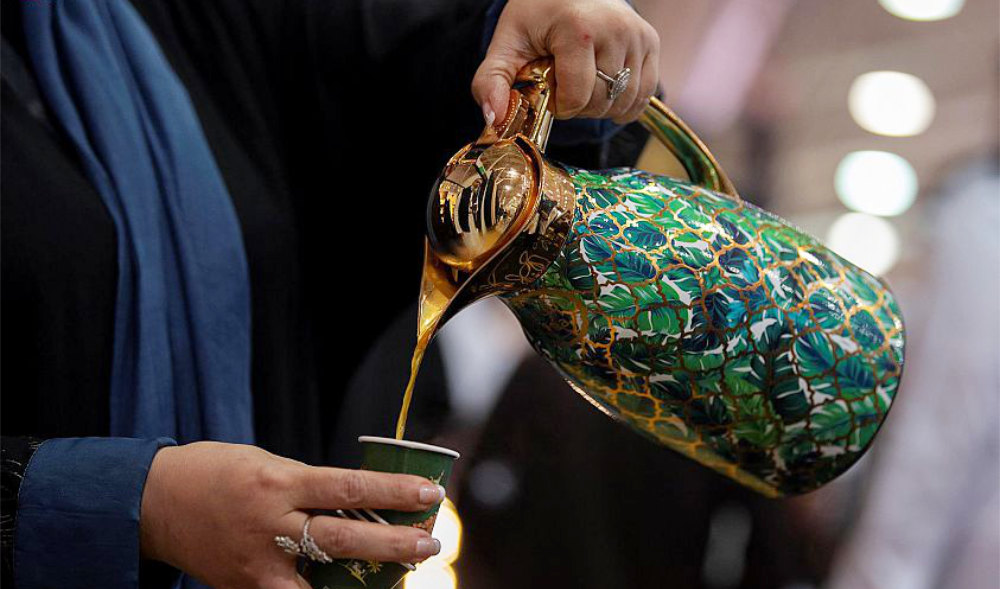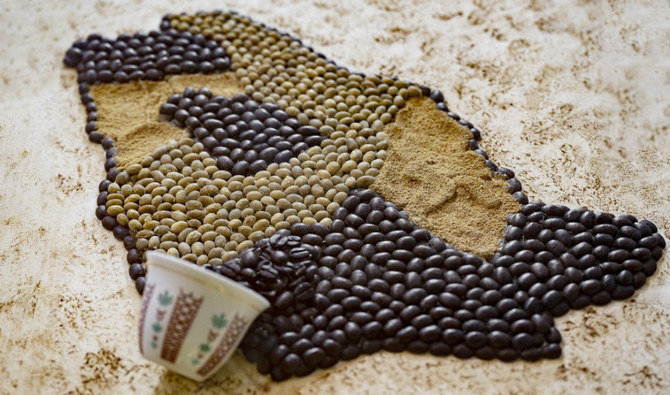RIYADH/MAKKAH: The commercial name of Arabic coffee will be officially changed to Saudi coffee in the Kingdom’s restaurants, cafes, stores, and roasters, following a Ministry of Commerce announcement on Sunday.
The announcement, from ministry spokesman Abdulrahman Al-Hussein, is in conjunction with a Culture Ministry initiative in naming 2022 as the “Year of Saudi Coffee” as a way to strengthen the identity and culture of Saudi Arabia.
Culture Minister Prince Badr bin Abdullah bin Farhan tweeted: “This is the year of Saudi Coffee.”
The initiatives aim to distinguish the flavor and preparation methods of Saudi coffee from other regional coffee.
“This decision is one of the most important and joyous decisions that do justice to Saudi coffee; it has become an identity that Saudis feel very proud of,” owner of the Saudi Dlalh Alqahua Roastery, Fahad Al-Harthy, told Arab News.
Nobel Peace Prize laureate and coffee expert Lameen Abdul-Malik explained how Saudi coffee was different.
“The difference between Saudi coffee and the general coffee in the region is that Saudi coffee is a bit lighter in the way it looks and that pertains to the way it is prepared,” he told Arab News. “For example, Saudi coffee tends to be roasted a little lighter, traditionally meaning it has a bit more caffeine in it, and that is why it is served in smaller cups. You can see from the color it is a pale gray. If I compare it to the coffee that I normally have in the United Arab Emirates, it is a little lighter. Saudi coffee takes at least 10 minutes to make, where you are boiling the water and coffee grounds.”
Abdul-Malik encouraged modern coffee shops and restaurants to start initiatives that would preserve and showcase local Saudi coffee and how each region prepared it.
The new decision attempts to distinguish the flavors of Saudi coffee from other regional coffees, while also creating a link to the Kingdom’s culture.
Saudi coffee is heavily associated with generational hospitality and generosity, providing a close connection to the country’s customs and traditions.
“The decision to change the name Arabic coffee to Saudi coffee is fair to Saudi coffee, which differs from the type of coffee in many other Arab countries, especially in Syria, Jordan, and Lebanon,” the owner of Al Ajaweed Arabic Coffee, Haitham Al-Awfi, told Arab News.
Al-Awfi has been working in the country’s coffee sector for more than 23 years. He said that Saudi coffee had gained popularity and interest not just among citizens but also among foreign visitors and expats.
“The responsibility of Saudi coffee has doubled after the decision to change the name, as this would make the name of Saudi coffee a logo and identity that serves all spectrums, and creates a competitive and spacious atmosphere,” Al-Awfi highlighted.
Al-Harthy said that his roastery, Dlalh Alqahua, supported many coffee shops and that the decision to rename products as Saudi coffee would “expand the agricultural geography of the coffee.”
He added that the decision would, in the future, create pride in cultural identity and increase the demand and presence of Saudi coffee roasts in the market.
















